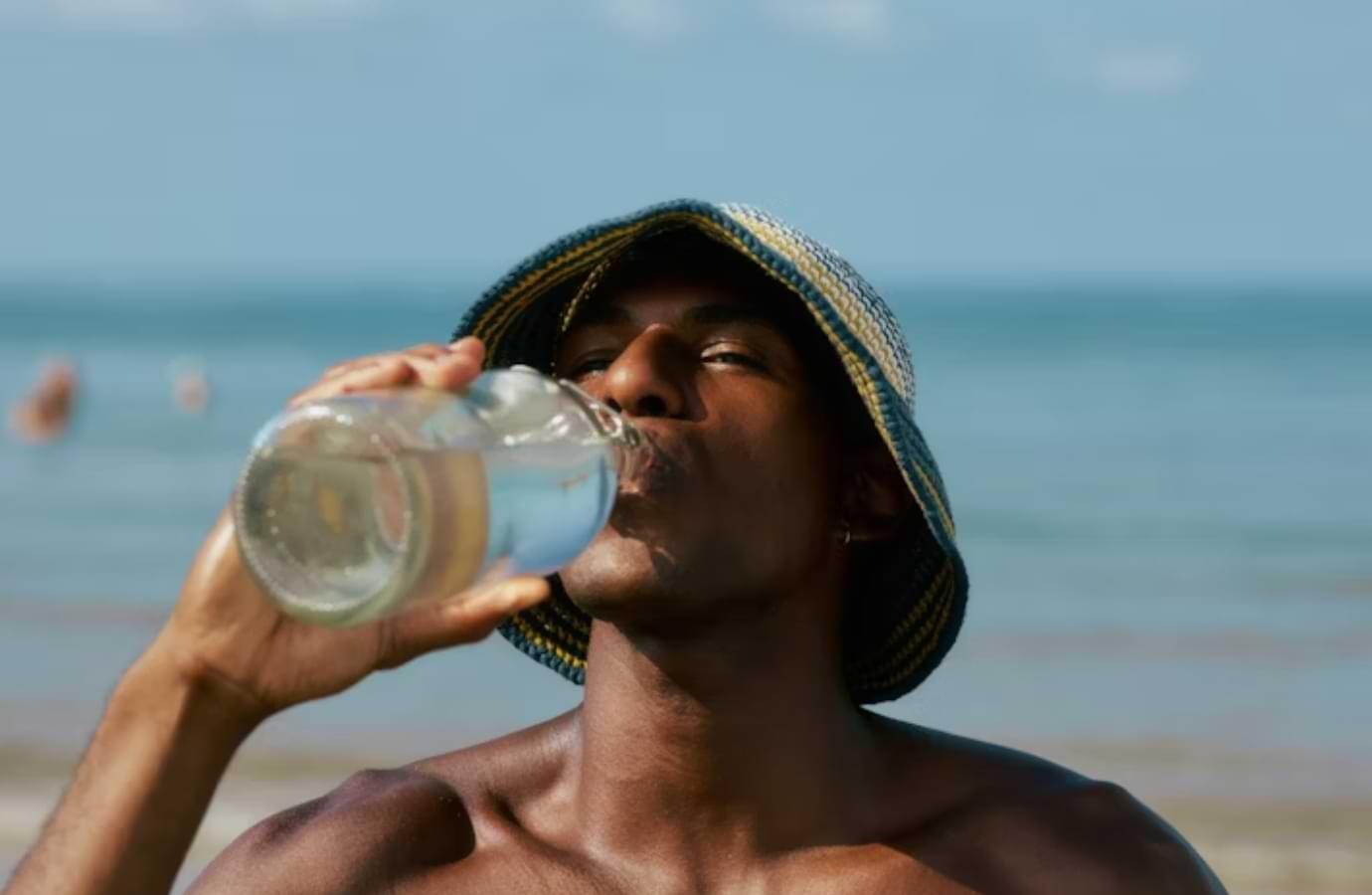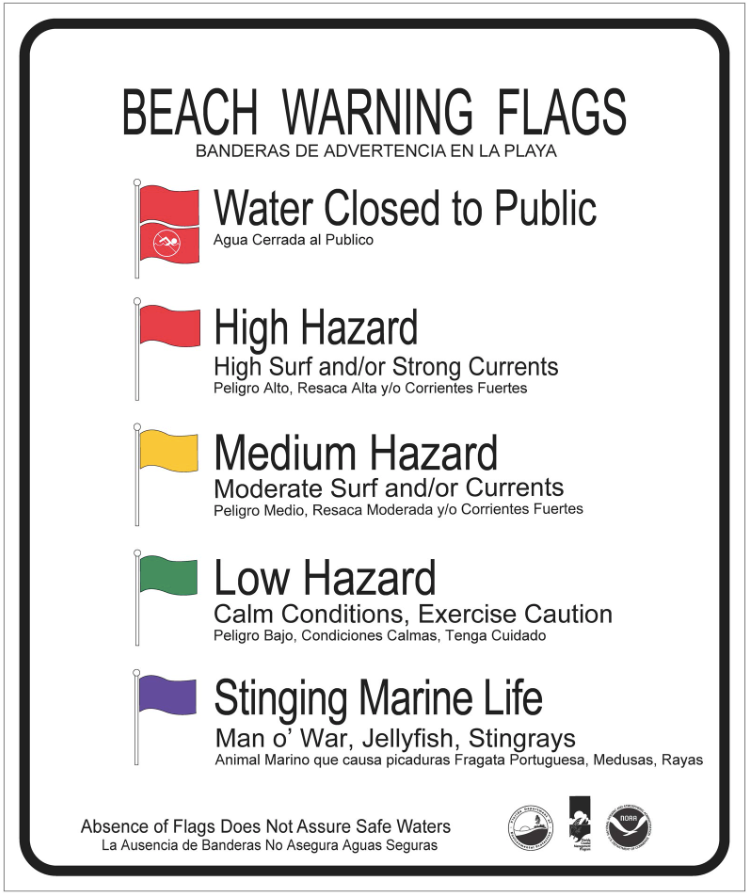Stay safe on Destin's beaches with 10 expert tips on sun, surf, flags, and hydration—so you can relax and enjoy the Emerald Coast.
Visiting Destin's beaches is one of the best experiences on Florida's Emerald Coast. But with millions of visitors each year, knowing how to stay safe can make or break your vacation.
This guide gives you ten essential safety tips to enjoy Destin's beaches confidently and responsibly.

1. Stay Hydrated at All Times
The Gulf heat can dehydrate you quickly, even when the breeze feels cool. The salt air and strong sun disguise how much fluid you lose through sweat. Bring more water than you think you'll need and drink it consistently, especially if you plan to stay for several hours.
According to the Centers for Disease Control and Prevention (CDC), dehydration can set in after just one to two hours of heat exposure without adequate fluids. Combine that with alcohol, and you'll lose hydration even faster.
Pro tip
Freeze water bottles overnight—they'll stay cold for hours on the beach.
2. Leave Dogs at Home
Destin beaches in Okaloosa County do not allow dogs, and bringing one could result in a fine. Walton County does permit dogs, but only with a local beach permit. Without one, expect a ticket.
More importantly, dogs can easily become dehydrated or sick from drinking salt water. Saltwater poisoning in dogs can cause vomiting, diarrhea, and worse dehydration.
The American Kennel Club (AKC) recommends always carrying fresh water for your pet when visiting coastal areas.

3. Obey Beach Flag Warnings
A red or double-red flag means the surf is too dangerous for swimming. The flag system is simple: green for calm, yellow for moderate surf, red for high hazard, and double red for "water closed to public." Ignoring these warnings can lead to serious injury or fines up to $500.
Rip currents cause more than 100 deaths each year in the U.S. according to the National Weather Service (NWS). Even on sunny days, strong underwater currents can pull swimmers away from shore. Check the Florida Department of Environmental Protection for the latest flag meanings and daily surf conditions.
What Do Florida Beach Flags Mean? How to Read Beach Safety Flags at a Glance
| Flag Color | Meaning | Description |
|---|---|---|
Double Red |
Water Closed to Public |
The beach and water are closed due to extremely dangerous conditions. |
| Single Red | High Hazard | High surf and/or strong currents — swimming not advised. |
| Yellow | Medium Hazard | Moderate surf and/or currents — use caution when swimming. |
| Green | Low Hazard | Calm conditions — exercise normal caution. |
| Purple | Stinging Marine Life | Indicates jellyfish, stingrays, or Man o' War are present. |
4. Protect Yourself from the Sun
The UV rays in Destin are stronger than many visitors expect. Reflections from sand and water amplify UV exposure, meaning you can burn faster than inland. Use a weather app to check the UV index each morning. Anything over 7 is considered high.
At midday, UV exposure in Destin can exceed that of northern U.S. states by 30%, especially during summer. Wear protective clothing and seek shade during peak hours (10 a.m.–4 p.m.). Visit EPA's UV Index Forecast for daily updates across Florida.
5. Use Sunscreen and Reapply Often
Apply SPF 30+ sunscreen and reapply every two hours, especially after swimming. Chemical sunscreens can wash off easily, so water-resistant options are best. Reapply to often-forgotten spots: tops of feet, ears, lips, and scalp.
Dermatologists recommend at least one ounce (a shot-glass full) of sunscreen per application for full coverage.
Alternative protection
- Sit under a canopy or umbrella
- Wear a wide-brimmed hat
- Switch to UPF-rated clothing after long exposure
6. Avoid Walking on the Dunes
The dunes are protected wildlife areas and off-limits to visitors. These fragile ecosystems protect the coastline from erosion and serve as nesting grounds for sea turtles. Walking on them damages native plants and disrupts wildlife habitats.
The Florida Fish and Wildlife Conservation Commission (FWC) enforces dune protection laws. Fines can reach $500 for violators.
Respect the fences: They're not for decoration; they protect both nature and your safety.
-E73345C7-9AD1-442F-8025B629B740096D.jpg)
7. Watch Out for Jellyfish and Stingrays
Purple flags indicate marine pests, including jellyfish and stingrays, are present. Jellyfish stings can range from mildly irritating to severely painful. Stingrays often hide under the sand near the shoreline. Shuffle your feet ("stingray shuffle") to alert them before stepping down.
Destin lifeguards regularly report jellyfish blooms after storms or warm current shifts. A quick glance at the flags before swimming helps you avoid nasty surprises.
First aid tip
Rinse jellyfish stings with vinegar or salt water—not fresh water—to reduce pain.
8. Be Aware of Beach Patrol Vehicles
Law enforcement and lifeguards patrol Destin beaches in trucks, especially during holidays. They respond to emergencies, monitor safety, and enforce regulations. If you're sunbathing or letting children play, keep an eye on vehicles approaching from a distance.
Safety reminder
Set up your beach chairs closer to the waterline, not near the dunes, where patrol vehicles often drive.
9. Mind Where You Step
Always check the sand before setting down your towel or walking barefoot. Destin's beaches are known for their cleanliness, but accidents happen; think glass shards, bottle caps, or sharp shells. Midday sand can also exceed 100°F.
A Florida State University study found sand temperatures in Gulf beaches can reach up to 120°F in peak hours—hot enough to cause burns.
Vacation Tip
Wear sandals or flip-flops until you settle in your spot, and remind kids to do the same.
10. Have Fun Responsibly
Knowing safety basics lets you fully relax and enjoy your time in Destin. Follow the rules, and you'll avoid preventable headaches. Once you've done that, dig for shells, paddleboard, toss a frisbee, or build a sandcastle masterpiece.
Remember: Preparation doesn't spoil the fun—it enhances it. A little caution keeps everyone safe and smiling through sunset.
At a Glance: Destin Beach Safety Summary
|
Tip # |
Category |
Core Advice |
Quick Action |
|
1 |
Hydration |
Bring plenty of water |
Freeze bottles before the trip |
|
2 |
Pets |
No dogs allowed in Okaloosa County |
Get a Walton County permit if needed |
|
3 |
Flags |
Red = danger, Double Red = closed |
Always check flag colors |
|
4 |
Sun Exposure |
High UV levels year-round |
Wear protective gear, seek shade |
|
5 |
Sunscreen |
Reapply every 2 hours |
Use SPF 30+ or UPF clothing |
|
6 |
Dunes |
Stay off protected areas |
Follow signage and fences |
|
7 |
Marine Life |
Watch for jellyfish and stingrays |
Do the "stingray shuffle" |
|
8 |
Patrol |
Vehicles drive on sand |
Stay alert, especially during holidays |
|
9 |
Sand Safety |
Avoid burns and sharp objects |
Wear flip-flops or sandals |
|
10 |
Fun |
Follow safety rules |
Enjoy the day responsibly |

Where to Stay During your BEach Holiday in Destin
Stay like a local and make yourself at home in one of our Travel Life Vacations rentals. Each private, resort-style home is designed with your comfort (and a little indulgence) in mind.
In a world full of the ordinary, we create spaces that feel refreshingly one-of-a-kind: homes built for unforgettable stays that'll have you planning your next visit before you even leave.

